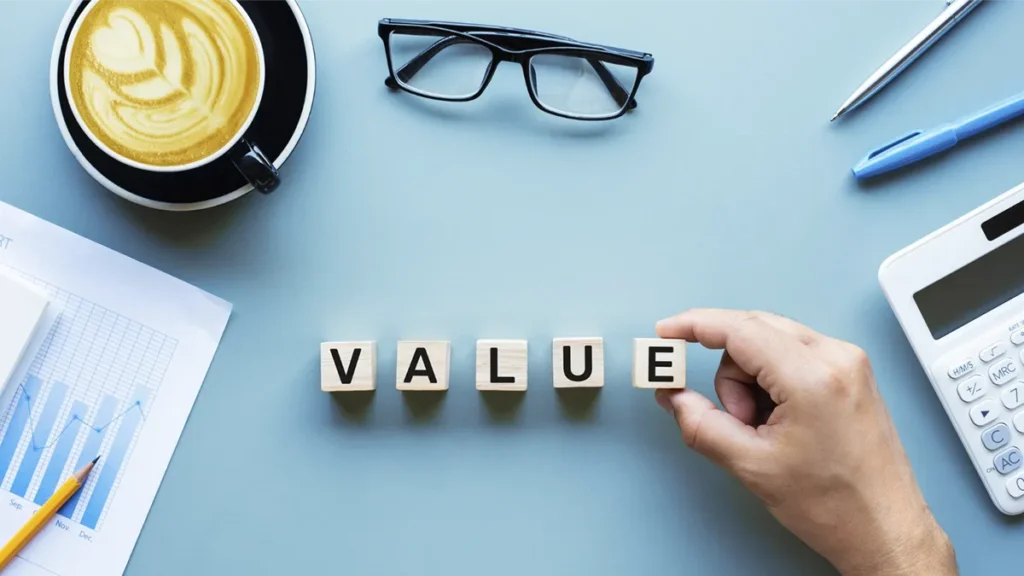How to Value a Business for Sale? 9 Proven Methods
Do you remember the first sale? The late nights. The risks no one saw. Pulling late nights and giving up so much over the past years goes into making your business what it is today. Now, if you’re thinking about selling, the most pressing question is: how to value a business for sale fairly?
BizBuySell reports that only 20% of small businesses are sold for the asking price, as buyers often believe the price is too high. Many owners overestimate their value, avoid following key trends, and trust their instincts rather than relying on figures.
This guide describes the 9 best small business valuation industry-recognized ways, helping you avoid usual mistakes and receive a proper value for your business.
Why Accurate Business Valuation Matters
Determining the proper value of your business is important for achieving a successful sale. If something is priced too high, it might not sell, and if it is priced too low, you could lose money. Here are the consequences of mispricing:
- Overpricing Risks: When you set the price too high, your listing may stay on the market for a longer period, driving fewer buyers. It eventually requires you to reduce your asking price.
- Underpricing Risks: If you set your business’s value too low, you might miss out on valuable money earned from your work and investments.
Often, the value owners set for their businesses is too high or influenced by their emotions, which causes the sale to fail.
Key Factors Influencing Business Value

Properly valuing a business needs you to understand all the things that impact its worth. Looking only at the finances misses important qualitative and quantitative factors that decide a company’s worth.
- Financial Performance
Healthy businesses are characterized by ongoing revenue growth and significant profit improvements.
- Market Position and Differentiation
Having a strong key value and a clear advantage over others may make a business more likely to grow and last longer.
- Leadership and Management Team
An experienced management team greatly improves the company. When a business is sustainable, it continues to operate independently of its owner.
- Customer Base and Relationships
A broad and devoted customer base shows that income won’t fluctuate much. Relying on a few big clients could be a cause for concern.
- Operational Systems and Processes
Strong and well-organized processes make a business look highly attractive. Following standardized rules guarantees uniformity.
How to Value a Business for Sale: 9 Effective Ways
Not sure how to value a business? Let’s have a look at the best company valuation methods:
- Asset-Based Valuation
You find the company’s value by taking away its liabilities from its assets. It suits companies that have major assets such as equipment, real estate, or inventory. Deploy it when you are trying to determine business value by checking its liquidity or financial assets. It is most applicable to firms that need to account for a lot of assets, such as manufacturers.
- Seller’s Discretionary Earnings (SDE)
It is one of the best business valuation methods. SDE is the total of net income and the extra perks and expenses you take. Small business valuation often uses this method because it reveals the owner’s real income. It is appropriate for businesses where the owner takes an active role.
- EBITDA Multiple
This approach applies well-known industry multiples to your EBITDA (Earnings Before Interest, Taxes, Depreciation, & Amortization). It provides buyers with a quick estimate and guidance on how to value a business for sale based on its cash flow. It is best to mid-size firms with clean financials.
- Discounted Cash Flow (DCF)
DCF projects future cash flows and discounts them to their present value. Although it’s complicated, it’s one of the most accurate ways to determine business value. Besides, it gives the most precise estimate of business value when there are changes in earnings. Ideal choice for startups as well as companies aiming to grow.
- Capitalization of Earnings
A capitalization rate is used in this way to convert future earnings into their present value. It works best when you can expect the amount of money you will make each year. It aligns best with reliable companies that have years of positive cash flow.
- Market-Based Valuation
Your business is measured by how it lines up with others that have been sold recently in your local market or industry. Using online valuation calculators gives you a simple way to find comparables. It is ideal for firms in highly competitive markets.
- Times-Revenue Method
It takes a company’s earnings and multiplies them by a factor set for its industry. In some cases, a SaaS company is sold for 2-3 times its revenue for the year. It seems simple, but it doesn’t consider how well the company makes money. It best suits service or technology companies for doing quick estimates.
- Return on Investment (ROI) Method
Investors look at your company and ask: “How much can I make if I pay for a share?”. A business’s value goes up when its annual profit is high. This is particularly relevant in markets or negotiations where buyers are the primary drivers of the process.
- Sum-of-the-Parts Valuation
If your business earns revenue from multiple areas, this method values each segment and sums them to determine the total. It explains the full value of the company in a clear way for complicated activities. Moreover, it suits companies that produce a variety of goods and services.
Tools and Professional Assistance

Precisely determining the value of your business is very important for a successful transaction. Although knowing how to value a business is important, professional support will yield a clearer and more proven result.
Use Online Valuation Calculators
It is often handy to start valuing your business by using an online valuation calculator. It provides information about revenue, cash flow, and the industry involved, which helps them make quick estimates. Here are a few trusted options:
- BizBuySell Business Valuation Report
- ExitPromise Business Valuation Tool
- BusinessBroker.net Estimator
They aren’t designed to produce detailed reports, but only give an estimate. Have these strategies backed by expert suggestions.
Engage Professional Advisors
Getting a thorough valuation may require involving the following experts:
- Business Brokers: Their role is to market businesses that are ready to be sold, find eligible buyers, and negotiate to help the business owner get the best price.
- Certified Public Accountants (CPAs): CPAs discuss your business’s financial situation and help with taxes. They guarantee your financial statements are correct and current.
- Accredited Business Appraisers: Business appraisal experts analyze and consider details including current market conditions, important assets, and expected income to produce a relevant report.
Common Pricing Mistakes to Avoid
Valuing the business right is very important, yet sellers can still slip into traps that disrupt the sale. It is important to look out for these typical problems:
- Emotional Overpricing: Entrepreneurs may overvalue their business due to letting their emotions direct pricing.
- Ignoring Business Debt: Not paying attention to business debt can make your business worth less than it is.
- Neglecting Comparable Sales: When you do not check comparable sales, you might price your business wrong.
- Overlooking Market Trends: Ignoring industry trends can lead to poor pricing decisions.
- Rigid Pricing Strategy: Implementing a rigid pricing strategy can deter buyers from becoming interested and slow down the deal-closing process.
Choosing the Right Valuation Method
It is essential to use the correct valuation technique, as it effectively highlights the unique characteristics of your business. To give you an idea, this is how it works:
- Asset-Based Approach: This approach is suitable for businesses that feature many tangible assets. Liabilities decrease the total assets to find the net value.
- Income Approach: This approach is best suited for businesses with consistent and predictable earnings. Calculating present value involves examining potential future revenues and discounting them using Discounted Cash Flow (DCF) or Capitalization of Earnings techniques.
- Market Approach: It aligns with firms in sectors where numerous sales represent similar transactions. The company’s value is figured out by comparing its price to the prices of comparable businesses.
Preparing for a Business Sale

Before listing your business, ensure it is well-organized so that buyers trust it and the sale proceeds smoothly.
- Organize Your Financials
People buying a business want the records to be accurate and neat. Create the tax returns, profit and loss statements, and balance sheets before the meeting.
- Document Operations
When your business has proper Standard Operating Procedures (SOPs), employee manuals, and workflows, running it without regular owner presence is possible.
- Boost Your Appeal
Work on partnerships with vendors, limit overdependence on a few clients, and demonstrate a competent and valued team.
- Keep It Confidential
Reveal the planned sale just to the necessary employees. Apply NDAs to make sure your business is protected and avoid alerting employees, customers, or suppliers.
Conclusion
Knowing how to value a business for sale is not just a matter of guessing; it involves a strategic approach. The blog outlines 9 best company valuation methods, their key considerations, helpful tools, and common mistakes to avoid. Choose the proper method, view the situation impartially, and get help from professionals whenever you need it. Selling a business at the right price will draw genuine prospects and give you a better shot at a business sale that is profitable.






